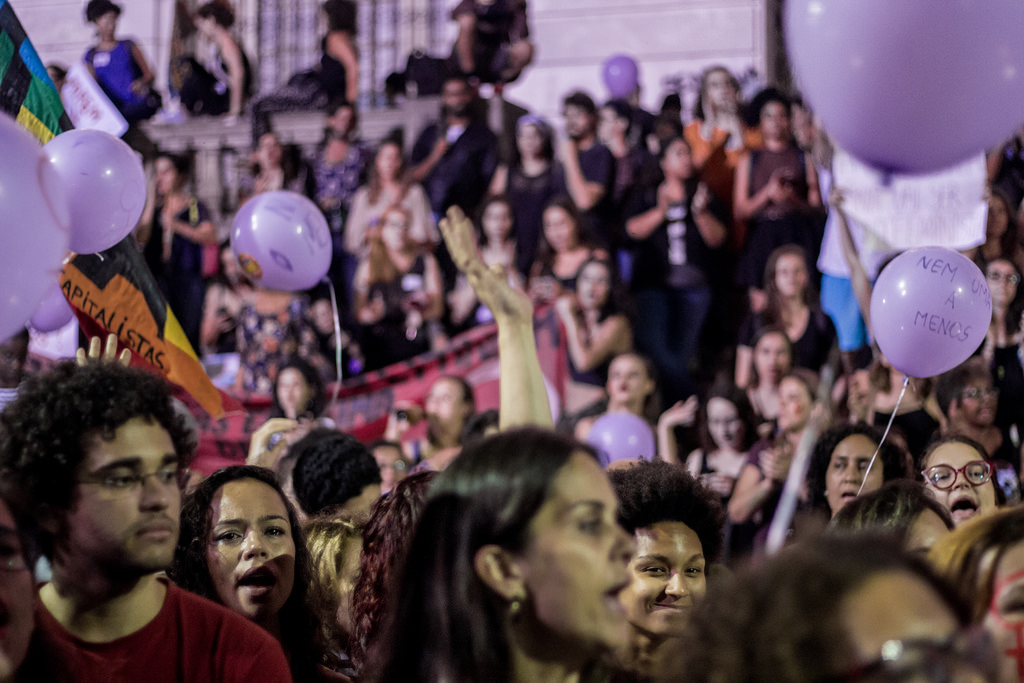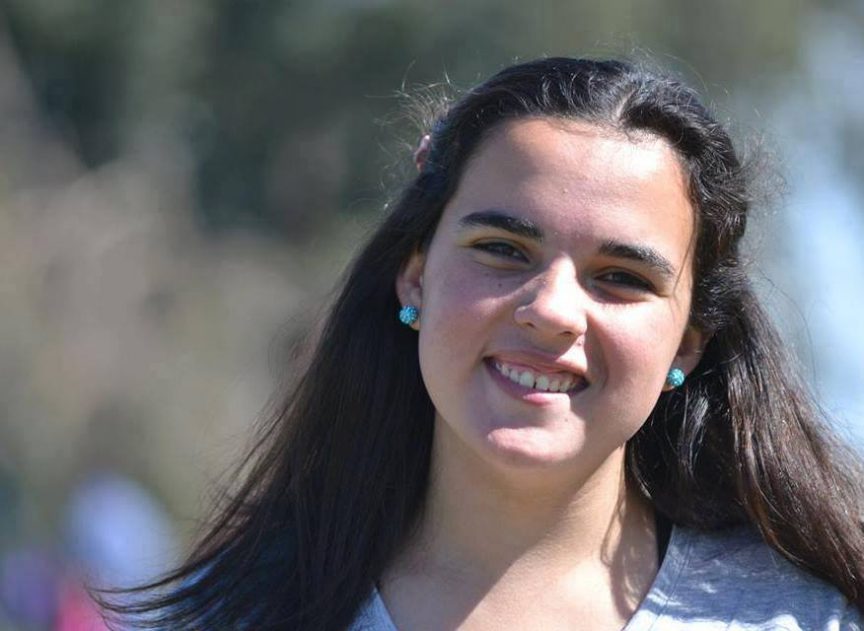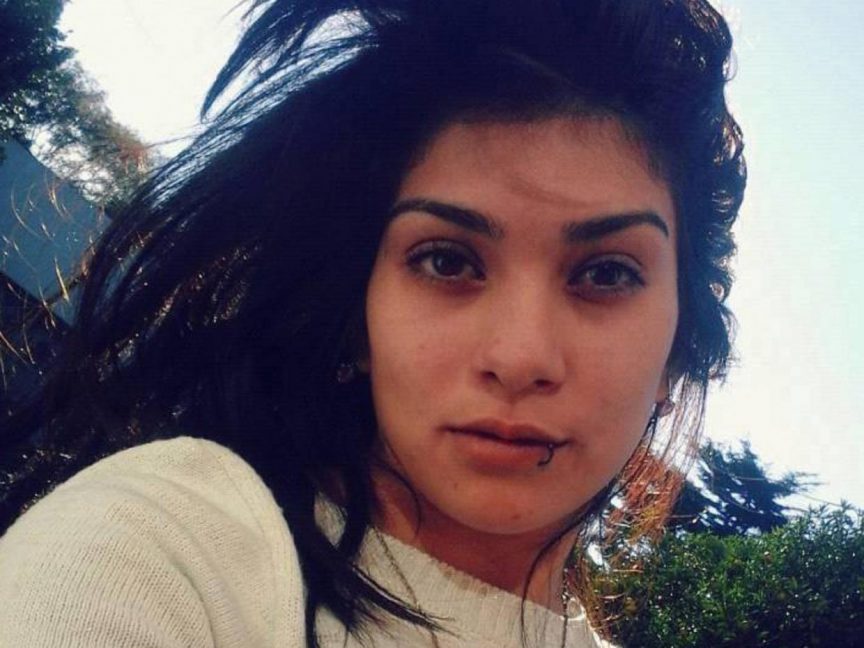Feminism in Argentina: From the #NiUnaMenos Protests to the International Women’s Strike
by Malena Lenta
7 March 2017

In 2015, 14-year-old Chiara Páez was murdered by her boyfriend for becoming pregnant. He beat her and buried her alive under the patio at his family’s home in Rufino, Argentina. His parents tried — unsuccessfully — to help him cover up the crime.
When Chiara’s body was discovered, there was an explosion of anger among women in the country, with hundreds of thousands of us taking to the streets to protest the murder and demand justice, under the slogan #NiUnaMenos — “not one woman less”.

Chiara’s murder was a tipping point for many Argentinian women, but it was far from an isolated incident. For more than a decade, the women’s movement in Argentina had been protesting against femicides: the murders of women for being women, the most extreme form of patriarchal violence.
According to statistics, a woman is killed every 18 hours at the hands of a partner or ex-partner in the South American country — but there have only been five actual convictions for femicide in the last seven years. The rest of the perpetrators continue to walk free.
Meanwhile, national and regional governments have repeatedly reduced the budget for social programmes aimed at preventing violence against women and providing psychological treatment and free legal aid to survivors.
By 2016, things had not got any better so on the anniversary of the first #NiUnaMenos march, women across the country again took to the streets to demand men stop killing us, and to insist on an increase in the social programmes budget. We condemned the government and the courts for allowing women to continue dying everyday.
New demands were added to the mobilisation, such as freedom for Belén — a 25-year-old woman who was arrested for having a miscarriage, when she went to a public hospital for help. Doctors reported Belén to police on suspicion of having had an abortion, a criminal offence in Argentina, where many doctors are affiliated with the Catholic Church. She was sentenced to eight years in prison.
As a result of Belén’s case, #NiUnaMenos in 2016 demanded all women in Argentina be given the right to legal, safe, and free abortions, and doctors stop criminalising women who seek to make decisions about their own bodies.
Later that year, on 18 October 2016, we called the first nationwide women’s strike — reacting with anger again, this time to the brutal rape and murder of 16-year-old school girl Lucía Pérez.

Thousands of women assembled outside their workplaces and an immense march went ahead despite heavy rain, to demand President Mauricio Macri’s national government stop turning a blind eye to gender based violence.
But, still, things haven’t changed much, leading the anger — and the organisation — of women in Argentina to continue to grow.
We are now preparing to join the first International Women’s Strike.
We expect it to be big.
The cry for #NiUnaMenos from Argentina was felt all over the world and was taken up by Mexican, Spanish, Turkish, Chilean, Brazilian, Uruguayan, and Italian women, among others, who marched in their countries against male violence.
The Polish women’s strike, which also took place in October 2016, gave further momentum to the global women’s movement, which rejects the macho, homophobic, racist and capitalist programmes that plunge the majority of people worldwide into poverty.
Following the inauguration of Donald Trump in the USA, the mobilisation of north American women to reject his politics and call for the construction of a feminist, anti-capitalist and anti-patriarchal women’s movement, gave the latest push to the coming 8 March action.
In Argentina, the context to the strike is one of economic misery, unemployment and violence that does not give women any respite. As a result, more than 500 trade unions and political organisations from all over the country are preparing to join the protest; in a sense, the Women’s Strike in Argentina is being organised not only to reject male violence, femicide, and human trafficking, and to call for legal abortion, but also as a call to arms against the economic programme of Macri’s government and all other capitalist governments worldwide.
Education workers are fighting for wage increases in Argentina and will join the women’s strike in order to demand the value of their work is recognised. Women railway workers will go on strike to protest against labour discrimination. Many women workers will hold assemblies in their factories. Health and public administration workers will walk out. And students will be supporting the teachers’ strike.
Argentinian women reject, in particular, the misogynistic and racist politics put forward by Trump. Women make up the majority of migrants in the world, we are the ones kidnapped into trafficking networks for sexual and labour exploitation, and we are the ones who experience the worst effects of capitalist economic programmes, because we are the poorest of the poor. For this reason, from Argentina, we call on women not to have to pay for the economic crisis generated by capitalist governments.
We want to strike and make the earth tremble so that, this time, the cry of “not one woman less” will really be fulfilled.